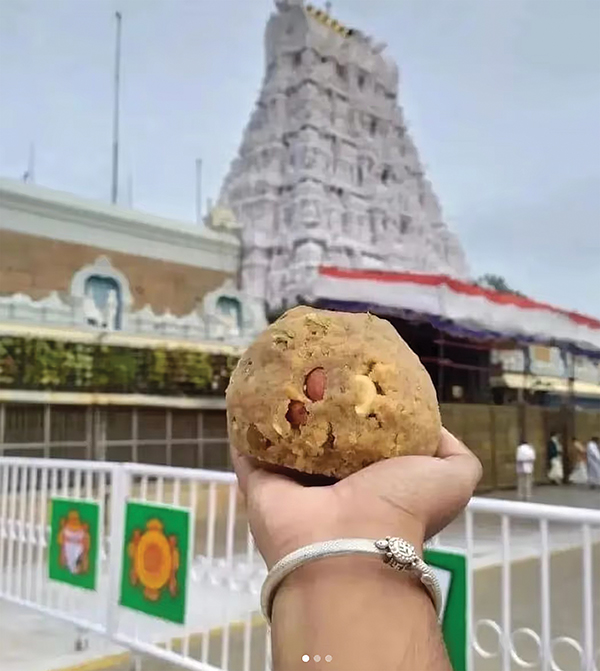
Tirupati Laddus Controversy
Three calls for action
by Caitanya Carana Dasa
The entire country of India is in an uproar since the discovery that the laddus offered to Tirupati Balaji contained forbidden elements, including remnants of meat—an unconscionable and utterly unacceptable occurrence for an offering to the deities.
How can we make sense of this from the perspective of the Bhagavad-gita? In Bhagavad-gita 18.30, Krishna says that “intelligence in the mode of goodness is that which understands what is to be done and what is not to be done.” I will discuss three things: autonomy, responsibility, and culpability, abbreviated as ARC.
- Autonomy: The most widespread demand in this situation is for the temples to be managed autonomously by Hindu communities. In the name of secularism, there is systematic discrimination against the majority religion in India, where influential Hindu temples are not given the autonomy that other religious institutions enjoy. This discrimination is both historical and political, stemming from imported ideas of secularism that don’t align with India’s unique religious and cultural landscape. Hindu temples are fully capable of managing their own affairs, as evidenced by the well-run Hindu temples in the diaspora. Autonomy is crucial to ensure that temple worship is maintained properly, without oversight that may overlook important religious sensitivities.
- Responsibility: Those responsible for the temples must not only manage them as tourist centers but also as religious and devotional centers. A person who takes responsibility for an art exhibition without any artistic sensibility cannot manage the event properly. Similarly, those managing temples must have religious sensitivity to properly oversee the worship and rituals. While those directly involved in deity worship may not always be suited for organizational management, those who understand both the spiritual sensitivities and the administrative requirements must be given responsibility.
- Culpability: Finally, there must be accountability for those responsible for this grave violation. The contamination of the food offered to the deities and then reverentially accepted by worshipers is a serious offense, and those involved must be held responsible. Without firm consequences, such incidents will become mere social media storms that quickly fade. A concerted effort is necessary to ensure that this does not happen again.
Caitanya Carana Dasa is the associate-editor of Back to Godhead (US and Indian editions). To read his daily Bhagavad-gita reflections, please subscribe to Gitadaily on his website, thespiritualscientist.com.
